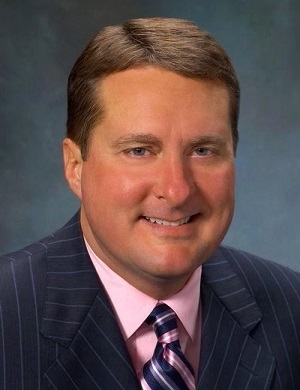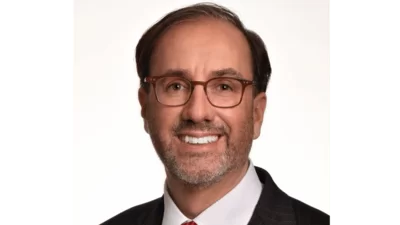Christopher Goff, CEO and general counsel of Employers Health, argues that an upcoming U.S. Supreme Court case “threatens to undermine important protections for employers across the country who provide health care benefits.“ | Photo Courtesy of Pixabay
Christopher Goff, CEO and general counsel of Employers Health, argues that an upcoming U.S. Supreme Court case “threatens to undermine important protections for employers across the country who provide health care benefits.“ | Photo Courtesy of Pixabay
As the uncertain and unceasing public health care crisis brought on by COVID-19 rages on, it is more important than ever for American families to have access to quality, affordable health care, regardless of where they live. At Employers Health, we know how much effort employers, labor unions, and others here in Ohio and across the country put into providing families these life-saving benefits. It’s why we work closely with companies to negotiate savings on prescription drugs and keep administration costs low.
But a case about to be heard by the Supreme Court threatens to undermine important protections for employers across the country who provide health care benefits.
What’s at stake when the Court hears Rutledge v. PCMA in the coming weeks is the foundation of employer-sponsored coverage. The case centers around a 2013 Arkansas law that increases cost, creates more red-tape and interferes with a patient’s ability to rely on in-network pharmacies to get their medications. The law guarantees minimum reimbursements for pharmacies and would allow a pharmacist to turn away a patient at the counter if the pharmacist doesn’t believe he or she is making enough money on that particular medicine, despite his or her agreement to participate in the health plan.

Christopher Goff is the CEO and general counsel of Employers Health.
| Employers Health
This case turns on the key question of whether the court will allow states to erode important federal protections, and in doing so threaten the ability of employers to deliver consistent, affordable, and high-quality health benefits programs.
To put it another way: Do workers living in Ohio deserve less access to quality care and the medications they need, while their colleagues, doing the exact same job at the exact same company 30 miles away in Indiana, get access to better care simply because of where they live? No. But that’s what could happen if the Supreme Court overturns the Circuit Court ruling that struck down the Arkansas law for employer plans because it interfered with key federal protections preventing this kind of state overreach.
State interference and overregulation is not a new concept, which is why Congress anticipated this exact conflict more than 45 years ago In order to protect employees and ensure they received the full value of the benefits their employers offered, Congress passed the Employee Retirement Income Security Act (ERISA) in 1974. This law ensured employers would not have to waste resources trying to manage unpredictable and varied state-based systems that could create disparities among employees and inefficiencies for employers.
Under ERISA, employers who provide benefits are required to be financially responsible with employee health care dollars. This means that they seek out the best available benefits at the lowest available cost. Covering all employees under one plan allows employers to take advantage of economies of scale and use their full bargaining power to negotiate the highest-value health care benefits possible.
Federal courts, including the Supreme Court, have upheld these important protections and preemption of state laws that interfere with them. If the Supreme Court decides to upend this longstanding precedent, the consequences for employers and patients will be far-reaching.
First, health care costs for employers and employees will increase; that’s a fact.
Second, employers’ administrative burdens will become even more onerous. At Employers Health, we work with plan sponsors to reduce the red tape and help them deliver quality benefits at a reasonable cost. Our complex regulatory system already makes this difficult — allowing a patchwork of regulation from states will make it even worse. Instead of offering innovative, strategic solutions to lower the cost of care for employees, employers will need to spend more time and more money to comply with an assortment of new regulations.
Finally, there will not be organized and consistent rules of the road for employee health benefit plans and policies, making it a regulatory landmine for employers. This will create confusion and chaos, and result in decades of complicated, overlapping powers and litigation — with taxpayers footing the bill.
For the sake of patients here in Ohio and across the country, we need the Supreme Court to prevent states from dismantling a system that has allowed employers to provide equitable and affordable health care benefits for employees and their families for more than 45 years.
Christopher Goff is the CEO and general counsel of Employers Health, a company that provides administrative support to health plan sponsors. Having led the organization for 25 years, he counsels plan sponsors in the areas of employee benefit strategies, contracting, ERISA and Affordable Care Act compliance. He is also an adjunct professor of law at The University of Akron School of Law where he co-directs the health law program.






 Alerts Sign-up
Alerts Sign-up